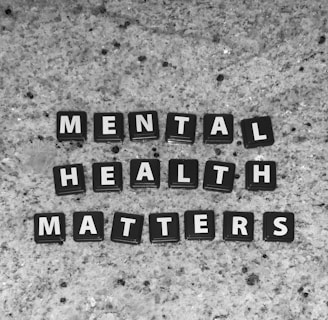Officer Wellness: Why Mental Health and Resilience Training Should Be Standard
Officer wellness is essential for long-term effectiveness. Explore why mental health and resilience training should be a standard part of public safety programs to support well-being and performance.
T. Adams
2/15/20252 min read


The demands of law enforcement place officers in high-stress, high-risk situations daily. While physical training and tactical preparedness are essential, mental health and resilience training should be equally prioritized. Addressing officer wellness through structured programs can lead to improved job performance, reduced burnout, and a healthier workforce.
The Mental Health Challenges of Law Enforcement
Police officers face unique psychological stressors, including:
Critical Incident Exposure – According to the National Alliance on Mental Illness (NAMI), repeated exposure to violence, death, and traumatic events contributes to an estimated 35% of law enforcement officers experiencing PTSD symptoms.
Chronic Stress and Fatigue – Studies from the International Journal of Emergency Mental Health indicate that shift work and long hours lead to a 40% increase in cardiovascular disease among officers.
Public Scrutiny and Organizational Pressure – Research from the Police Executive Research Forum (PERF) highlights the growing impact of media scrutiny on officer decision-making and stress levels.
Stigma Around Seeking Help – The Ruderman Family Foundation reports that law enforcement officers are more likely to die by suicide than in the line of duty, yet many avoid seeking mental health resources due to perceived stigma.
Key Components of Officer Wellness Programs
1. Resilience Training
The FBI Law Enforcement Bulletin emphasizes the importance of resilience training, which includes cognitive behavioral techniques, stress inoculation training, and exposure therapy to help officers manage trauma.
2. Peer Support and Counseling Services
The National Police Foundation recommends peer support programs, noting that agencies with structured peer counseling see a 30% decrease in reported stress-related absences.
3. Sleep and Fatigue Management
According to the CDC, law enforcement officers who get fewer than six hours of sleep per night have a 63% higher risk of injury due to impaired reaction times and decision-making abilities. Training on sleep hygiene and implementing fatigue management policies can mitigate these risks.
4. Mindfulness and Stress Reduction Techniques
Programs such as Mindfulness-Based Resilience Training (MBRT) have been successfully adopted by agencies like the Chicago Police Department, showing a 27% reduction in officer stress levels after implementation.
5. Leadership Involvement in Mental Health Advocacy
Data from the International Association of Chiefs of Police (IACP) suggests that agencies where leadership openly discusses mental health see a 50% increase in officer utilization of wellness programs.
Implementing Standardized Mental Health Training
To integrate mental health training effectively, agencies should:
Include wellness training in police academies and continuing education programs. Research from the Bureau of Justice Assistance (BJA) suggests that early intervention reduces long-term mental health decline.
Partner with mental health professionals to develop evidence-based curriculum. Agencies such as the LAPD have successfully incorporated licensed clinical psychologists into training.
Normalize conversations about mental health to reduce stigma. A study published in the Journal of Occupational Health Psychology found that officers trained in stigma reduction are 60% more likely to seek mental health support.
Monitor program effectiveness through surveys and officer feedback. Regular assessments based on the Mental Health Continuum Model can provide measurable results on wellness initiatives.
Conclusion
Mental health and resilience training should be a fundamental part of every law enforcement agency’s standard operating procedures. By prioritizing officer wellness through data-backed methodologies and evidence-based programs, departments can enhance overall performance, reduce burnout, and create a healthier, more resilient police force.


